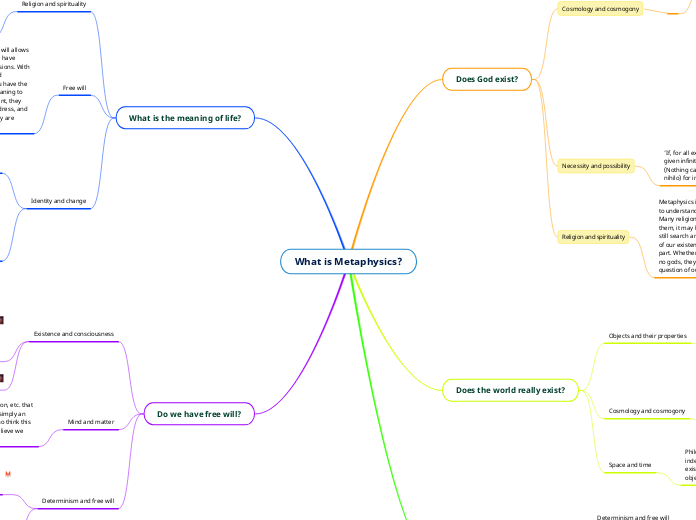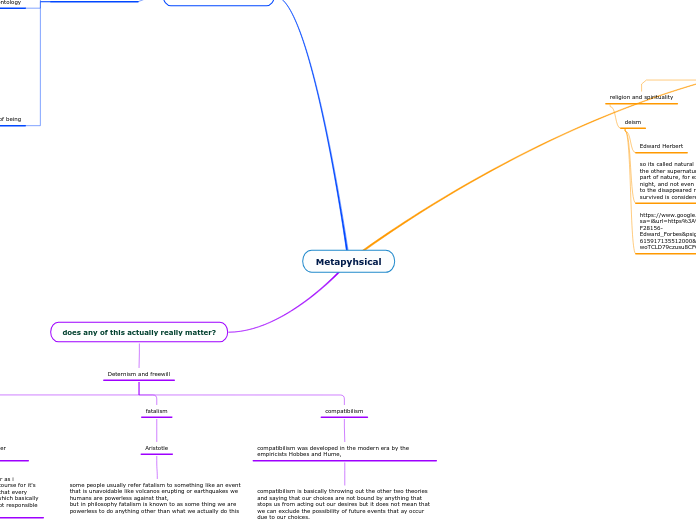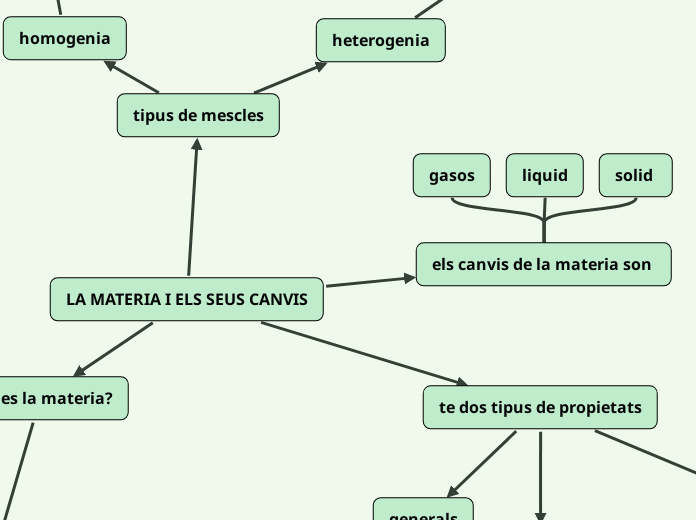What is Metaphysics?
Do we have free will?
'Determinism is a philosophical idea that is often contrasted with free will. The adherents of this idea believe in the inevitability of causality. In their opinion, every event that ever took place was inevitable due to an intricate network of preceding events, which all contributed to the said outcome.'
'Free will is a person’s ability to govern the course of their actions unimpeded, i.e., not constrained with necessity or fate. As for historical definitions, to Plato, free will was a person’s self-mastery.'
If matter is real things, if it all has size, mass, location, etc. that would mean free will is mind and to many, mind is simply an illusion, a figment of our imagination. To people who think this way, free will is simply an illusion, something we believe we have but in reality, we dont.
Existence and consciousness
'Existence and the awareness of the existence constitute everything-that-is, and nothing at all is possible outside of this.'
'Consciousness is basically all of existence. Consciousness and existence are one and the same, but express themselves in different ways: existence as all of manifested matter and energy, and consciousness as our unexpressed inner being. Consciousness refers to all the higher and finer dimensions that manifest themselves as the gross reality of the physical world. All of nature is one big information system that communicates instantaneously amongst all of its seemingly divided parts.'
What is the meaning of life?
Identity and change
One's identity is made up out of memories, experiences, relationships, and values that create one’s sense of self. One’s identity is what gives people a purpose, meaning to their life. It gives one hope, motivation and inspiration which leads to making more memories, experiencing more, and figuring out what they want to do with their life. Without this, they will feel lost and confused, they will have no idea what to do with themselves and will not feel as if their life has any meaning or purpose.
We know what we are, but not what we may be.
Shakespeare, Hamlet
Free will
Having free will or believing that one does have free will allows one to live their life freely, they feel like their choices have meaning and that they have freedom in making decisions. With the power of choice, they are free to explore and find themselves no matter how long it takes. Knowing you have the power and time to explore your identity provides meaning to life. They can express themselves in the way they want, they won't feel restricted and believe they must behave, dress, and express themselves in certain ways just because they are meant to be that way.
Religion can help provide a sense of purpose, a meaning to life to many different people from different religions whether that is Christianity, Paganism, Judaism, etc. Religion can even help people cope with loneliness and being socially disconnected, it has the power to bring together groups of people and create a family. It can help people have an idea of what they want to do with their lives.
Does any of this matter?
Mind and matter
The idea behind mind and matter are connected to this topic question.
The idea of necessity and possibility could have one question the whole argument of determinism and free will. It could make one question that if they have no free will here, could they somewhere else?
Determinism and free will
Does the world really exist?
Space and time
Philosophical absolutism is the metaphysical view that there is indeed an absolute reality. This idea suggests that reality exists independently of human knowledge. Its existence is objective and unlimited in, or beyond space and time.
Cosmology and cosmogony are the study of how the universe came to be. It focuses on the physical universe, its structure, dynamics, origin and so much more. Cosmogony is about all the different myths that explain the origin of life and the world itself.
'In antiquity ideas about the origins of the world are many and diverse, but such beliefs seem to have been concerned with the creation of the terrestrial world on which people lived, and not necessarily of the entire cosmos. Indeed, before the invention of the telescope there was little understanding about the vastness of the cosmos.'
Objects and their properties
Substance theory is the belief that substances are the ultimate things in the universe. The universe is not made up of elementary particles, but of substances. This idea is different from the modern view of the universe.
'A substance is a dog, a rock, a planet, a particle and a computer. An accident is something like being white, standing up, kicking that ball or being hit by Tom. It is somewhat helpful to think of substances as nouns and accidents as every other part of language. Nouns are about people, places or things. Substances are people, and things (places just refer to things). Accidents refer to features of substances. They are always the subject and object of the sentence. This gives a good indication of what substances and accidents are.'
Does God exist?
Religion and spirituality
Metaphysics is this huge area of study in philosophy that seeks to understand the existence of our world and humankind. Many religions try to explain how our world has come to be. To them, it may be a god or multiple gods. With spirituality, they still search and attempt to give a metaphysical understanding of our existence, but it does not include a god for the most part. Whether or not they believe in one god, multiple gods, or no gods, they all use metaphysical thinking to answer the question of our existence.
Theology examines both God and the divine. Theology questions the possibility of God and the role of God in creating and maintaining the universe. Some spiritualists may argue that there is no God while people apart of religions may argue that there is a God and argue for the theological views that are presented by their religion.
What brings religion and spirituality together is the nature of existence at a fundamental level.
Necessity and possibility
'If, for all existent objects, they do not exist at some time, then, given infinite time, there would be nothing in existence. (Nothing can come from nothing—there is no creation ex nihilo) for individual existent objects.'
Humans can not come from nothing, plants and
animals can not come from nothing, so with this argument,
there must be some kind of God. One cannot appear from nowhere.
Cosmology and cosmogony









